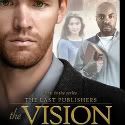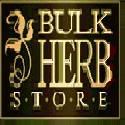
It is very presumptuous of me to even broach this topic. Maybe you’d think that the parent of a child with special needs would know just what to do or what to say, but the truth is that the responses are just as different as the people who must deal with a devastating diagnosis.
So, I’ll try and give you a little information and some direction based on my experience. However, you’ll need to figure out how it applies to your circumstance.
I REALLY have to hand it to my parents on this one. For all of the mistakes they’ve ever made, they deserve some sort of trophy for knowing how grandparents proceed when they find out their grandchild has special needs. My mom was a little weepy (well, that’s just her), and she just hugged me a lot. Most importantly, she held that grandbaby and sang to him. She didn’t know what to say, so she just sang to him and did whatever she could think of to get him to respond to her. It was so nice to see someone else relating to him as a baby and not as a diagnosis.
My dad did a lot of holding too. He seemed stunned by it all, like someone had punched him in the gut or taken something he didn’t know he had. Yet, when they were with us, Dad would either hold the baby or find something positive to say about his growth, strength, progress, color, or whatever. There were SO MANY days when all we had were discouraging reports from the medical community. It was a RELIEF to hear someone notice something positive for a change.
Having a baby in the house is supposed to be a time of joy. My parents, in their own way, helped us remember that this was a BABY. I’m sure they discussed the matter with any number of their friends and heard all sorts of miss-information, but they didn’t tell us about it. They didn’t expect us to help them through their grief. Wisely, they knew that we were processing all of these things ourselves. They leaned on others that didn’t know us and wouldn’t carry tales of conversations out of context. Mom has the gift of gab so this was a TREMENDOUS GIFT to us. It kept us from having to answer thoughtless questions or having to add ‘comfort parents’ to our long list of things we needed to do.
As far as other friends and extended family, the parents of the child will really be your guide. Even if you have a child that has the same diagnosis, there are so many treatment options and the field is changing so quickly, that what was cutting edge treatment for your child may not be the best for their child. So, when it comes to treatment options, I would only share word of mouth recommendations. The parents will likely already have REAMS of information to wade through, trying to figure out what to do. It is overwhelming enough without well-meaning family and friends adding to the pile. In my opinion, the recommendation of a parent with a positive outcome trumps any number of theories from other sources. Plus, it’s encouraging to hear what worked for another family. Become a peddler of hope.
Speaking of peddlers, beware of the predators. They are out there and they are shameless. These people will tell new parents (they are trained to spot them when they are out with their little one) that they have just the right nutrient/vitamin/enzyme/etc. combination in supplemental form that will give this child a fighting chance at a productive future. Their literature is heavy on anecdotal testimonials, and they refuse to answer probing questions. For hundreds of dollars a month, they will sell you hope and not take any of the responsibility for your financial ruin or a less than ideal outcome.
One company even offers a ‘scholarship’ for your special kid. Be prepared to be placed on a waiting list (read that mailing list) where you will be contacted and told how your child could be making progress IF ONLY you could get relatives to foot the bill NOW. Oh, and once you get to the top of the list, be prepared to add your child’s picture to their literature with your glowing reports – that is IF you want to qualify for the ‘scholarship.’
New parents are vulnerable to these tactics.
I’ll leave you to develop your own methods to protect them. >;(
One thing that EVERYONE can agree on is that whole foods free of toxins are best for optimum development in ANY child. People don’t realize the affect that foods truly have in a child’s ability to interact with his/her environment and his/her ability to learn. Yet, figuring out WHO to believe is quite the challenge. For this, I have two books and two web sites that have information everyone needs to know. The web sites are free. The books are well worth the investment.
Both of these books are crucial resources.
Unraveling the Mystery of Autism, by Karyn Seroussi details one mother’s search to determine what foods were affecting her son’s behavior and development. I understand why the word autism is part of the title, but I don’t think it is a book only for parents of autistic children. I believe ALL parents wanting to know how to determine if their children are reacting badly to toxins in foods NEED to read this book.
Nourishing Traditions by Sally Fallon is a mind-expanding education on how to pack the most nutrients into and eliminate toxins out of foods. She details the elements of good nutrition and what quality sources offer these things in whole food form.
The National Association for Child Development has been on the forefront of research into how to increase the efficiency of neurological pathways. At the bottom of this link --
http://www.nacd.org/more_information/health_nutrition.html -- are some specially formulated recipes that provide lots of nutrients in easily digested form. You can actually view some of the forums where moms of special needs kids share tips on what has (or hasn’t) worked for them.
WellTellMe (
http://www.welltellme.com/discuss/) is a site that deals with natural health from a Christian perspective. It’s like having a Mama online. Other moms share what they have learned, their research, and what works for them. A search is likely to reveal that there is already a discussion thread on a topic you about which you’d like more information.
I mention these resources because most of them have moms with a kid that is already dealing with the diagnosis that your new little one has. When you place these tools into a new mom’s hands, you are handing her the gift of other loving moms who can relate to her experiences, and reference materials that she can draw upon for years to come.
Of course, none of this tells you what to do for your sister or your friend or your relative that just discovered their baby has _____________.
The BEST thing you can do is BE THERE and tell those parents that you BELIEVE in them. Your heart will show through even if you say some thing stupid like:
§ These children are always so loving! (Yeah, when they aren’t clobbering big brother with a toy. *eye roll*)
§ These children are such a blessing! (Oh, I’m so glad I finally got one of THOSE. The other ones were just duds. (:-/) )
§ God gives special kids to special parents. (????? I know the sentiment is good, but the parents and the child are all human. Let’s acknowledge reality. God can handle what is.)
Remind them that God is more than equal to the task of filling in all of the blanks and providing them with what they need to accomplish this task. If they are angry at God, tell them that He’s big enough to handle their anger. Remind them of what HE says about children. These parents have heard everyone else’s evaluation of their child. Send them reminders of how God sees children and the promises He makes in His word for them.
Pray for them and send them notes to tell them that you are praying. Ask to hold their baby. Play with the baby. Delight in their baby – even if you have to figure out how to do it around tubes and such. Make meals, phone calls, feed the dog, water the grass, or whatever other practical helps you can offer. They may not have enough strength or stamina to say thank you, but they will remember your heart and forgive any inadvertent flubs.
And when you just don’t know what to say and the awkward moments come say, “I don’t know what to say. Could you use a hug?”
Psalm 127:3 contains the phrase, “children are an heritage of the LORD.” Until I had Z-man, I didn’t give that phrase a lot of thought. I was reading it one day and it occurred to me that children are the rewards that God pays Himself. This child isn’t the result of the good or bad of ME but this child is the LORD’s heritage. God called my child a reward.
On my darkest days when I didn’t know WHAT to believe, I turned away from the medical documentations and prognosis and determined that I would believe HIM. If my child didn’t measure up to men’s standards, then I’d just use God’s measure. This child is a gift God made for Himself.
}{*}{*}{*}{*}{*}{*}{*}{*}{*}{*}{*}{*}{*}{*}{*}{*}{*}{*}{*}{*}{
Psalm 127:3
Lo, children are an heritage of the LORD:
and the fruit of the womb is his reward.

 It is very presumptuous of me to even broach this topic. Maybe you’d think that the parent of a child with special needs would know just what to do or what to say, but the truth is that the responses are just as different as the people who must deal with a devastating diagnosis.
It is very presumptuous of me to even broach this topic. Maybe you’d think that the parent of a child with special needs would know just what to do or what to say, but the truth is that the responses are just as different as the people who must deal with a devastating diagnosis.











Thanks for the great article in No Greater Joy's newsletter! I appreciated someone finally telling the story of the not-so-average home-school family. Most articles on child-training and educating are difficult to apply to my own special needs son but I know I'm not alone in dealing with these challenges. I know it's hard to teach your kids at home but most parents don't have to teach simple tasks such as swallowing or getting into a sitting position, etc. Keep up the good work! -jess
Thank you for your article in NGJ!
Our youngest was diagnosed with autism and it has been hard. Thank you for your reflections and recommendations.